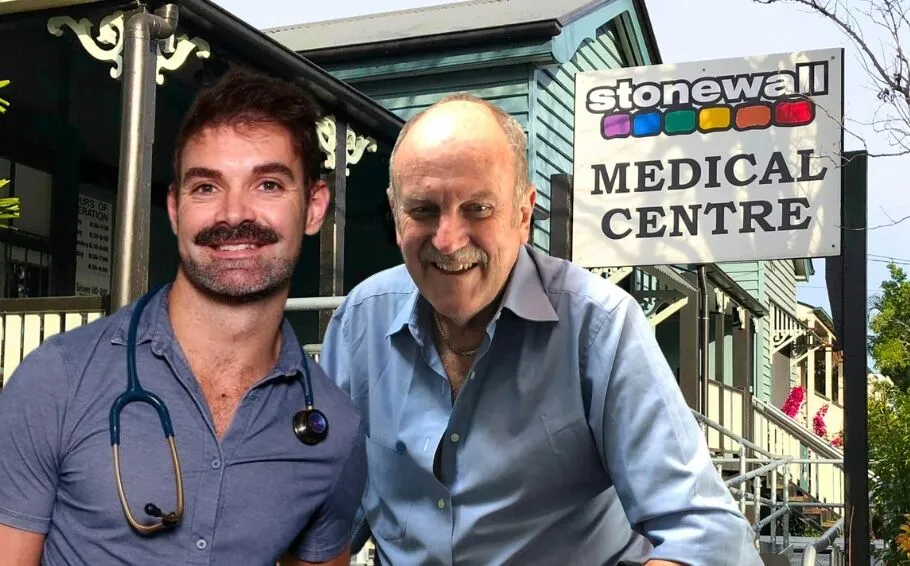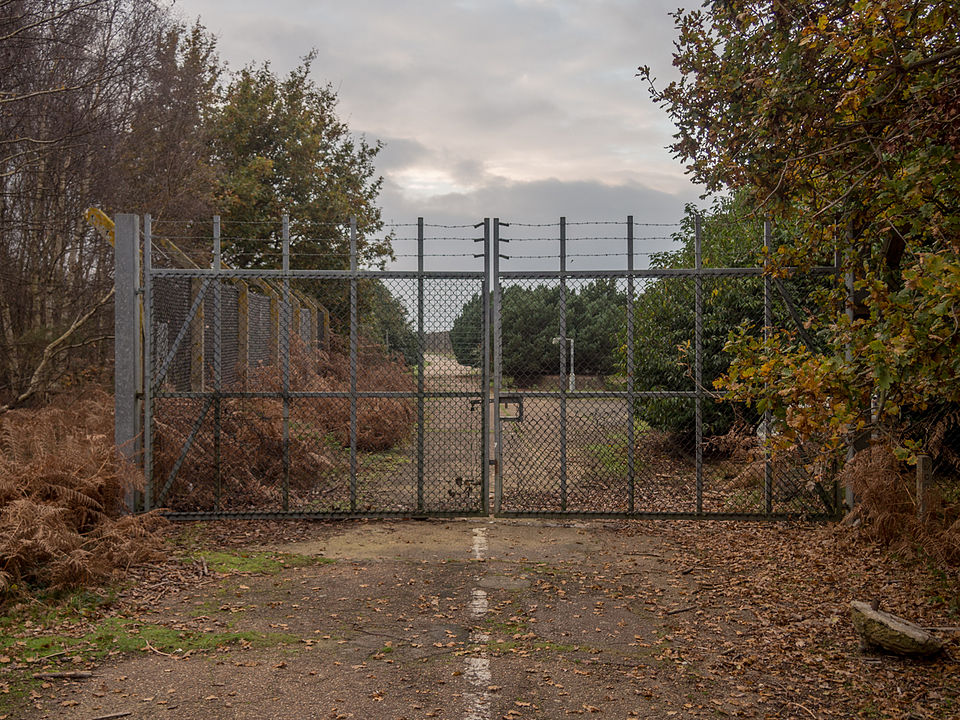A New Chapter for Stonewall Medical Centre
Brisbane’s Stonewall Medical Centre, a cornerstone of inclusive healthcare for the LGBTQIA+ community, has embarked on a new chapter with its recent transition to new ownership. Founded by Dr. Wendell Rosevear, a revered figure in Queensland’s healthcare and advocacy landscape, the clinic has been a beacon of compassionate and accessible medical services since its inception in 1995. After nearly three decades of leadership, Dr. Rosevear has passed the mantle to Dr. Matt Barber, ensuring the clinic’s mission endures. This significant milestone, marked by the sale finalized in June 2025, reflects a commitment to sustaining a safe and affirming environment for Brisbane’s diverse communities, particularly those within the LGBTQIA+ spectrum.
The transition comes at a time when general practices face unprecedented challenges, including declining Medicare funding and a shrinking pool of doctors willing to take on practice ownership. Despite these hurdles, both Dr. Rosevear and Dr. Barber are steadfast in their dedication to preserving Stonewall’s legacy as a vital resource for holistic, non-discriminatory healthcare. This article delves into the history, impact, and future of Stonewall Medical Centre, enriched with historical and cultural context, including the significance of its namesake, the Stonewall Inn, and the broader evolution of LGBTQIA+ healthcare in Australia.
The Origins of Stonewall Medical Centre
Responding to a Crisis: The HIV/AIDS Epidemic
The roots of Stonewall Medical Centre trace back to the late 1980s, a period marked by the devastating HIV/AIDS crisis that swept across Australia and the world. During this time, Queensland faced unique challenges due to limited healthcare services tailored for those affected by HIV/AIDS, compounded by the criminalization of homosexuality until 1991. Dr. Wendell Rosevear, alongside his colleague Dr. David Orth, recognized the urgent need for specialized care and established the Gay and Lesbian Health Service in 1990. This initiative was a direct response to government inaction and societal stigma, offering palliative care and support for individuals grappling with the disease.
In those early years, the absence of effective antiretroviral treatments meant that HIV/AIDS was often a terminal diagnosis. Dr. Rosevear and Dr. Orth worked tirelessly, providing not only medical care but also emotional and communal support. They introduced coded, anonymous HIV testing to encourage individuals to seek diagnosis without fear of legal or social repercussions, a groundbreaking approach at a time when being openly gay was still illegal in Queensland. This initiative laid the foundation for what would become Stonewall Medical Centre, embodying a commitment to accessibility and dignity in healthcare.
Founding Stonewall: A Safe Haven in Windsor
In 1995, Dr. Rosevear and Dr. Orth established Stonewall Medical Centre at 52 Newmarket Road in Windsor, a suburb just north of Brisbane’s central business district. The clinic’s opening followed the decriminalization of homosexuality in Queensland in 1991, a pivotal moment that allowed for greater visibility and advocacy within the LGBTQIA+ community. Named after the Stonewall Inn in New York City—where the 1969 riots sparked the modern gay rights movement—the clinic was envisioned as a safe haven where individuals could access healthcare without judgment or discrimination.
The choice of the name “Stonewall” carries profound cultural and historical significance. The Stonewall Inn, located in Greenwich Village, became a symbol of resistance when patrons, primarily from marginalized queer communities, fought back against a police raid on June 28, 1969. This event catalyzed the formation of advocacy groups like the Gay Liberation Front and inspired annual Pride celebrations worldwide. By naming the clinic after this iconic site, Dr. Rosevear signaled his intent to create a space that not only provided medical care but also championed social justice and equality. As he stated, “I built the centre because I wanted Brisbane to always have its own Stonewall.”
Dr. Wendell Rosevear: A Trailblazer in Advocacy and Healthcare
A Lifetime of Service
Dr. Wendell Rosevear’s contributions to Queensland’s LGBTQIA+ community extend far beyond the walls of Stonewall Medical Centre. Born in 1955, he has dedicated over four decades to healthcare and advocacy, earning him widespread respect and recognition, including an Order of Australia Medal in 1998 for his service to the community, particularly in HIV/AIDS care and social reform. His approach to medicine is holistic, emphasizing not just physical health but also emotional and psychological well-being, a philosophy that has shaped Stonewall’s ethos.
Dr. Rosevear’s advocacy began in an era when the LGBTQIA+ community faced systemic barriers, including legal persecution and societal stigma. He was instrumental in lobbying for key reforms, such as the decriminalization of homosexuality, equalized age of consent, and addressing issues like addiction, domestic violence, and sexual abuse. His work with peer support groups, such as the Gay and Lesbian Alcohol and Drug Support Group (GLADS, established in 1991) and Men Affected by Rape and Sexual Abuse (MARS, established in 1993), underscores his commitment to addressing the unique challenges faced by marginalized groups.
“When people walk in the door, they can just be themselves,” Dr. Rosevear said, encapsulating the ethos of Stonewall Medical Centre.
Navigating Challenges: Keeping Stonewall Afloat
In 2000, Stonewall Medical Centre faced potential closure due to a national doctor shortage, a crisis that threatened many general practices. Dr. Rosevear stepped in to take full ownership, ensuring the clinic’s survival. That first year was fraught with difficulties, including the loss of one doctor to travel and another to addiction, yet Dr. Rosevear persevered. His leadership saw the clinic through expansions in 2016 and 2021, incorporating neighboring buildings to accommodate growing demand. Today, Stonewall employs seven doctors, a nurse practitioner, two nurses, three counselors, and offers specialized services like sexual health testing and recovery programs.
Dr. Rosevear’s decision to sell the clinic in 2025 was driven by a desire to secure its future beyond his tenure. At 70 years old, he acknowledged the need for a succession plan to maintain Stonewall’s viability. “Ensuring its accessibility is so important to me,” he said, emphasizing his commitment to the clinic’s mission. Rather than retiring, Dr. Rosevear will continue working under Dr. Barber’s leadership, ensuring continuity of care and expertise.
Dr. Matt Barber: The New Custodian of Stonewall’s Legacy
A Commitment to Inclusive Healthcare
Dr. Matt Barber, the new owner of Stonewall Medical Centre, steps into a role that carries immense responsibility and honor. A member of the LGBTQIA+ community himself, Dr. Barber is acutely aware of the clinic’s significance as a safe space for patients who might otherwise face discrimination in mainstream healthcare settings. His acquisition of both the clinic and its premises on Newmarket Road reflects a strategic effort to keep Stonewall in local, community-focused hands.
In a statement shared on social media, Dr. Barber highlighted the challenges facing general practices in Australia. “Fewer and fewer doctors are choosing to own and lead general practices,” he noted, citing the Royal Australian College of General Practitioners’ (RACGP) Health of the Nation report, which indicates a historic low in practice ownership interest. He also pointed to ongoing Medicare funding cuts, which have strained the financial viability of independent clinics. Despite these obstacles, Dr. Barber is resolute in his mission to maintain Stonewall’s role as a provider of “inclusive, high-quality healthcare in a safe, affirming environment.”
“This clinic has always been about more than just medicine,” Dr. Barber said. “It’s about ensuring every patient can access the care they need without fear of discrimination.”
A Vision for Sustainability
Dr. Barber’s vision for Stonewall Medical Centre builds on its established legacy while addressing contemporary challenges. The clinic’s comprehensive services, which include general practice, sexual health testing, HIV management, and transgender healthcare, are designed to meet the diverse needs of its patient base. By retaining local, LGBTQIA+ ownership, Dr. Barber aims to preserve the clinic’s unique culture and ensure it remains a trusted resource for the community.
The transition to new ownership is not merely a change in leadership but a reaffirmation of Stonewall’s core values. Dr. Barber’s commitment to sustainability involves navigating economic pressures while expanding access to services like telehealth and fast sexual health testing, initiatives that have broadened the clinic’s reach to remote and underserved populations.
The Cultural and Historical Significance of Stonewall
The Stonewall Inn and the Global Gay Rights Movement
The naming of Stonewall Medical Centre after the Stonewall Inn is a deliberate nod to a pivotal moment in global LGBTQIA+ history. The Stonewall Riots of 1969 were a turning point, galvanizing activism and leading to the establishment of organizations that fought for legal and social equality. The riots were led by figures like Marsha P. Johnson and Sylvia Rivera, transgender women of color who became icons of resistance. Their legacy resonates in the clinic’s mission to serve all members of the LGBTQIA+ community, including those who are often marginalized within it, such as transgender and intersex individuals.
In Australia, the Stonewall Riots inspired early Pride movements, with the first Mardi Gras parade in Sydney in 1978 marking a similar act of defiance against oppression. Stonewall Medical Centre embodies this spirit of resistance and empowerment, providing a space where patients can seek care without fear of stigma or judgment. The clinic’s establishment in 1995 coincided with a period of growing visibility for Australia’s LGBTQIA+ community, following decriminalization and the gradual introduction of antiretroviral therapies that transformed HIV/AIDS from a death sentence to a manageable condition.
LGBTQIA+ Healthcare in Australia: A Broader Context
The history of LGBTQIA+ healthcare in Australia is intertwined with the broader struggle for equality. In the 1980s and 1990s, the HIV/AIDS crisis exposed deep-seated prejudices within the healthcare system, with many patients facing discrimination or inadequate care. Community-driven initiatives, like the Gay and Lesbian Health Service and later Stonewall Medical Centre, emerged to fill this gap. These organizations not only provided medical services but also fostered a sense of community and solidarity, often in partnership with groups like the Queensland AIDS Council (QuAC).
Over the decades, advancements in medical science, such as the development of pre-exposure prophylaxis (PrEP) and post-exposure prophylaxis (PEP), have revolutionized HIV prevention and treatment. Stonewall has been at the forefront of these advancements, offering rapid STI testing and S100 HIV prescribing, ensuring patients have access to cutting-edge care. The clinic’s telehealth services, launched in 2020, have further expanded access, particularly for transgender and gender-diverse individuals in regional areas.
Stonewall’s Services and Community Impact
Comprehensive and Holistic Care
Stonewall Medical Centre is renowned for its comprehensive approach to healthcare, addressing both physical and mental health needs. The clinic’s team includes seven general practitioners, a sexual health physician, a nurse practitioner, two nurses, and three counselors, supported by allied health professionals like nutritionists and psychotherapists. Services range from general medicine to specialized care in sexual health, transgender health, and addiction recovery.
The clinic’s Fast Access Sexual Testing (FAST) program, launched in 2020, provides rapid results for HIV, chlamydia, syphilis, gonorrhea, and hepatitis, reducing wait times and enabling early treatment. Stonewall also offers free flu shots and bulk billing for concession card holders, enhancing accessibility. Its after-hours service and wheelchair-accessible facilities further demonstrate a commitment to inclusivity.
Beyond medical care, Stonewall hosts peer support groups like GLADS and MARS, which provide safe spaces for individuals to address issues like substance abuse and sexual violence. These programs reflect the clinic’s holistic ethos, recognizing that health extends beyond the physical to encompass emotional and social well-being.
Community Engagement and Advocacy
Stonewall Medical Centre has long been a hub for community engagement, hosting events like the 2018 expansion opening officiated by former Governor-General Dame Quentin Bryce. Such events highlight the clinic’s role as a cultural and social institution, fostering connections within the LGBTQIA+ community and beyond. Dr. Rosevear’s advocacy for legal and social reforms has also amplified Stonewall’s impact, influencing policies on decriminalization, age of consent, and domestic violence.
The clinic’s commitment to cultural sensitivity is evident in its approach to diverse patient groups, including sex workers, transgender individuals, and those with HIV. By creating an environment where patients can be themselves, Stonewall has built trust and loyalty, as reflected in patient testimonials praising the empathy and professionalism of its staff.
Challenges and the Future of Stonewall Medical Centre
Navigating Financial and Systemic Challenges
The transition to new ownership occurs against a backdrop of significant challenges for Australian general practices. Medicare funding cuts have strained independent clinics, with many struggling to remain financially viable. The RACGP’s Health of the Nation report underscores a decline in doctors’ interest in practice ownership, driven by administrative burdens and economic pressures. For a specialized clinic like Stonewall, these challenges are compounded by the need to provide tailored services to a diverse and often vulnerable patient base.
Dr. Barber’s leadership will be critical in navigating these challenges. His focus on local, LGBTQIA+ ownership ensures that Stonewall remains attuned to the community’s needs, but it will require innovative strategies to maintain financial sustainability while expanding services. Investments in telehealth and partnerships with organizations like Queensland Health are steps toward this goal, ensuring Stonewall remains a leader in inclusive healthcare.
Looking Ahead: A Sustainable Legacy
As Stonewall Medical Centre moves forward under Dr. Barber’s stewardship, its mission remains unchanged: to provide high-quality, inclusive healthcare in a safe and affirming environment. The clinic’s expansion to include advanced services like telehealth and rapid STI testing positions it to meet the evolving needs of its patients. Dr. Rosevear’s continued involvement ensures that the clinic’s founding values endure, while Dr. Barber’s leadership brings fresh energy and vision.
The story of Stonewall Medical Centre is one of resilience, compassion, and community. From its origins in the HIV/AIDS crisis to its role as a modern healthcare provider, the clinic has consistently adapted to meet the needs of Brisbane’s LGBTQIA+ community. As it embarks on this new chapter, Stonewall remains a testament to the power of inclusive healthcare and the enduring legacy of those, like Dr. Rosevear, who have fought for equality and dignity in medicine.

















0 Comments